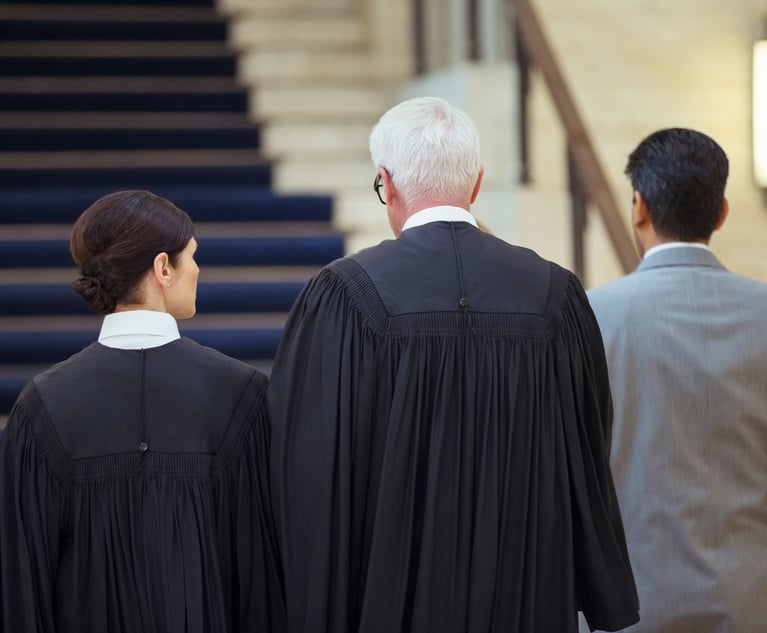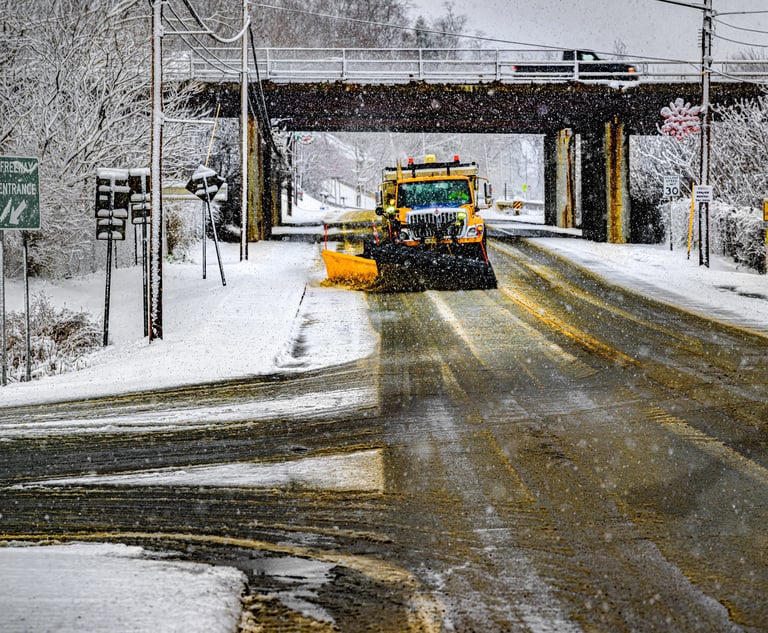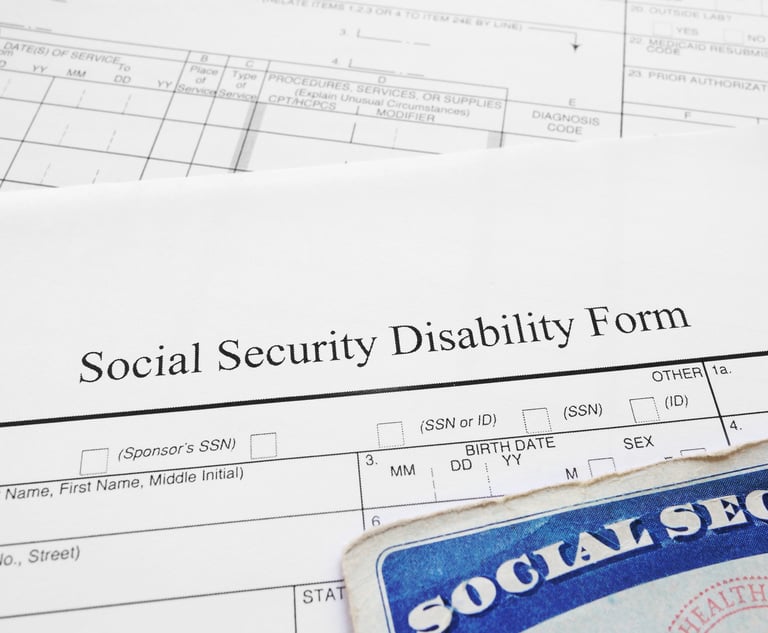Judicial Ethics Opinion 20-130
On the extraordinary circumstances presented, this judge must insulate their law clerk from matters involving a particular family.
January 22, 2021 at 05:32 AM
4 minute read
The Advisory Committee on Judicial Ethics responds to written inquiries from New York state's approximately 3,600 judges and justices, as well as hundreds of judicial hearing officers, support magistrates, court attorney-referees, and judicial candidates (both judges and non-judges seeking election to judicial office). The committee interprets the Rules Governing Judicial Conduct (22 NYCRR Part 100) and, to the extent applicable, the Code of Judicial Conduct. The committee consists of 27 current and retired judges, and is co-chaired by the Honorable Margaret Walsh, a justice of the supreme court, and the Honorable Lillian Wan, a court of claims judge and acting supreme court justice.
We respond to your inquiry (20-130) about insulating your law clerk. For approximately a decade, you have presided in a variety of proceedings involving a particular family. You note the family "is litigious, often commencing new proceedings (modification of custody/visitation, or violation/enforcement proceedings) annually or bi-annually." Your current law clerk previously had certain connections with that family as an attorney in private practice: (a) he/she served as the attorney of record for one parent in a Family Court proceeding and related Supreme Court enforcement proceedings, each of which reached their "natural conclusion" more than four years ago; (b) his/her client was awarded attorney's fees from the other parent, which were never paid; [1] and (c) the other parent sued the law clerk and his/her client, although the lawsuit was dismissed with prejudice four years ago. On hiring the law clerk, you disclosed the law clerk's prior representation. One parent, who regularly appears without counsel, objected to the law clerk's participation. Since then, you have insulated the law clerk from all matters involving the family. You note that all the current cases involving this family were filed after the law clerk had ceased practicing law; thus, the law clerk had no personal involvement as an attorney in any of the cases currently before you. Accordingly, you ask if it is mandatory to insulate the law clerk from later-filed court proceedings involving this family, and (if so) for how long.
A judge must always avoid even the appearance of impropriety (see 22 NYCRR 100.2) and must always act to promote public confidence in the judiciary's integrity and impartiality (see 22 NYCRR 100.2[A]).
This content has been archived. It is available through our partners, LexisNexis® and Bloomberg Law.
To view this content, please continue to their sites.
Not a Lexis Subscriber?
Subscribe Now
Not a Bloomberg Law Subscriber?
Subscribe Now
NOT FOR REPRINT
© 2024 ALM Global, LLC, All Rights Reserved. Request academic re-use from www.copyright.com. All other uses, submit a request to [email protected]. For more information visit Asset & Logo Licensing.
You Might Like
View AllTrending Stories
- 1Call for Nominations: Elite Trial Lawyers 2025
- 2Senate Judiciary Dems Release Report on Supreme Court Ethics
- 3Senate Confirms Last 2 of Biden's California Judicial Nominees
- 4Morrison & Foerster Doles Out Year-End and Special Bonuses, Raises Base Compensation for Associates
- 5Tom Girardi to Surrender to Federal Authorities on Jan. 7
Who Got The Work
Michael G. Bongiorno, Andrew Scott Dulberg and Elizabeth E. Driscoll from Wilmer Cutler Pickering Hale and Dorr have stepped in to represent Symbotic Inc., an A.I.-enabled technology platform that focuses on increasing supply chain efficiency, and other defendants in a pending shareholder derivative lawsuit. The case, filed Oct. 2 in Massachusetts District Court by the Brown Law Firm on behalf of Stephen Austen, accuses certain officers and directors of misleading investors in regard to Symbotic's potential for margin growth by failing to disclose that the company was not equipped to timely deploy its systems or manage expenses through project delays. The case, assigned to U.S. District Judge Nathaniel M. Gorton, is 1:24-cv-12522, Austen v. Cohen et al.
Who Got The Work
Edmund Polubinski and Marie Killmond of Davis Polk & Wardwell have entered appearances for data platform software development company MongoDB and other defendants in a pending shareholder derivative lawsuit. The action, filed Oct. 7 in New York Southern District Court by the Brown Law Firm, accuses the company's directors and/or officers of falsely expressing confidence in the company’s restructuring of its sales incentive plan and downplaying the severity of decreases in its upfront commitments. The case is 1:24-cv-07594, Roy v. Ittycheria et al.
Who Got The Work
Amy O. Bruchs and Kurt F. Ellison of Michael Best & Friedrich have entered appearances for Epic Systems Corp. in a pending employment discrimination lawsuit. The suit was filed Sept. 7 in Wisconsin Western District Court by Levine Eisberner LLC and Siri & Glimstad on behalf of a project manager who claims that he was wrongfully terminated after applying for a religious exemption to the defendant's COVID-19 vaccine mandate. The case, assigned to U.S. Magistrate Judge Anita Marie Boor, is 3:24-cv-00630, Secker, Nathan v. Epic Systems Corporation.
Who Got The Work
David X. Sullivan, Thomas J. Finn and Gregory A. Hall from McCarter & English have entered appearances for Sunrun Installation Services in a pending civil rights lawsuit. The complaint was filed Sept. 4 in Connecticut District Court by attorney Robert M. Berke on behalf of former employee George Edward Steins, who was arrested and charged with employing an unregistered home improvement salesperson. The complaint alleges that had Sunrun informed the Connecticut Department of Consumer Protection that the plaintiff's employment had ended in 2017 and that he no longer held Sunrun's home improvement contractor license, he would not have been hit with charges, which were dismissed in May 2024. The case, assigned to U.S. District Judge Jeffrey A. Meyer, is 3:24-cv-01423, Steins v. Sunrun, Inc. et al.
Who Got The Work
Greenberg Traurig shareholder Joshua L. Raskin has entered an appearance for boohoo.com UK Ltd. in a pending patent infringement lawsuit. The suit, filed Sept. 3 in Texas Eastern District Court by Rozier Hardt McDonough on behalf of Alto Dynamics, asserts five patents related to an online shopping platform. The case, assigned to U.S. District Judge Rodney Gilstrap, is 2:24-cv-00719, Alto Dynamics, LLC v. boohoo.com UK Limited.
Featured Firms
Law Offices of Gary Martin Hays & Associates, P.C.
(470) 294-1674
Law Offices of Mark E. Salomone
(857) 444-6468
Smith & Hassler
(713) 739-1250










